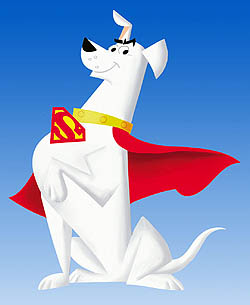
(type) value
(value)
const_cast<type>(value)
static_cast<type>(value)
dynamic_cast<type>(value)
reinterpret_cast<type>(value)
In C, casting worked like this:
float f = 3.14; unsigned char *p = &f; printf("%02x %02x %02x %02x\n", p[0], p[1], p[2], p[3]);
c.c: In function 'main': c.c:2: warning: initialization of 'unsigned char *' from incompatible pointer type 'float *' c3 f5 48 40
float f = 3.14; unsigned char *p = (unsigned char *) &f; printf("%02x %02x %02x %02x\n", p[0], p[1], p[2], p[3]);
c3 f5 48 40
This works in C++, but don’t. Detect with g++ -Wold-style-cast.
This isn’t really casting, but sure is similar:
int n; n = int(3.14); cout << "n is " << n << '\n';
n is 3
Of course, an actual programmer would just do this, even though a fussy compiler might issue a warning:
int n = 3.14; cout << "n is " << n << '\n';
n is 3

The problem with C-style casting is that it’s too powerful. It’s an “anything goes” sort of operation:
long l = (long) "Krypto the Superdog"; cout << l << '\n';
4196616
In C++, it was decided to break up the vast power of the C-style cast into separate tools:
const_cast<type>(value): remove constness
static_cast<type>(value): usual conversions
dynamic_cast<type>(value): object type conversion
reinterpret_cast<type>(value): go nuts
const_castchar *p = "☹"; cout << p;
c.cc:1: warning: ISO C++ forbids converting a string constant to 'char*' ☹
That failed, because p is type char *,
whereas "☹" is type const char[] or const char *.
const_castconst_cast<type>(value) removes constness.
You have to specify the new type, but it must be the original
type with const added.
char *p = const_cast<char *>("☺"); cout << p;
☺
const_castHowever, const_cast can only change constness, not type:
const double *p = const_cast<const double *>("☹"); cout << p;
c.cc:1: error: invalid const_cast from type 'const char*' to type 'const double*'
Similarly, for references.
static_caststatic_cast<type>(value): usual conversions
double d = 3.15; int i = static_cast<int>(d); cout << i;
3
int i = static_cast<int>("123"); cout << i;
c.cc:1: error: invalid static_cast from type 'const char [4]' to type 'int'
dynamic_castdynamic_cast<type>(value): object type conversion
class Base { public: virtual void foo() { } }; class Derived : public Base { }; Base b, *bp = &b; Derived *dp = dynamic_cast<Derived *>(bp); if (dp == nullptr) cout << "Conversion failed.\n"; else cout << "Conversion succeeded.\n";
Conversion failed.
reinterpret_castreinterpret_cast<type>(value): go nuts
double avo = 6.022e23; long l = reinterpret_cast<long>(&avo); cout << l << endl; int n = *reinterpret_cast<int *>(&avo); cout << n << endl; int *p = reinterpret_cast<int *>(42); cout << "Goodbye, cruel world: " << *p << endl;
140727947684064 -195565037 SIGSEGV: Segmentation fault